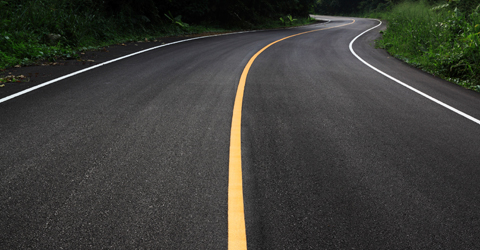Exploring the Environmental Benefits of Hot Mix Asphalt
The use of Warm Mix Asphalt in facilities projects offers an engaging case for lasting development and ecological stewardship. By delving into the intricate information of its production procedures and the ingenious use of recycled materials, a much deeper understanding emerges of how this technology surpasses mere surface area applications. The environmental advantages of Warm Mix Asphalt extend much past preliminary impressions, supplying a nuanced perspective on exactly how this material can lead the way for a greener future.

Minimized Greenhouse Gas Emissions
The manufacturing procedure of Hot Mix Asphalt entails heating up the mix of aggregate and asphalt binder to high temperatures. By including redeemed asphalt pavement and recycled asphalt shingles right into the mix, the demand for virgin products is decreased, leading to energy financial savings and decreased discharges associated with removal and handling.
Research studies have shown that Hot Mix Asphalt sidewalks have a smaller carbon footprint over their life process compared to other pavement choices. The toughness and recyclability of Hot Mix Asphalt further boost its ecological benefits by decreasing the need for constant maintenance or substitute, thus conserving resources and decreasing emissions related to restoration activities.
Power Efficiency and Preservation
The manufacturing process of Warm Mix Asphalt not just decreases greenhouse gas exhausts yet also adds considerably to power effectiveness and conservation efforts. Power effectiveness is a vital advantage of Hot Mix Asphalt production compared to various other pavement types. The procedure entails heating up the materials at heats to create the asphalt mix, which needs much less energy than alternative techniques. Additionally, the ability to recycle and recycle asphalt pavement better enhances power preservation. By incorporating reclaimed asphalt pavement (RAP) right into brand-new mixes, the market conserves power that would certainly have been needed to create totally brand-new materials. The durability of Hot Mix Asphalt minimizes the regularity of upkeep and repair, leading to long-term power financial savings. This long life minimizes the energy-intensive processes associated with constant fixings and substitutes. Overall, Hot Mix Asphalt stands apart as an ecologically pleasant alternative that focuses on energy efficiency and conservation throughout its lifecycle.
Lasting Pavement Solutions

One trick aspect of sustainable sidewalk solutions is the use of recycled materials such as recovered asphalt pavement (RAP) and recycled asphalt roof shingles (RAS) By integrating these materials into the asphalt mixes, the need for virgin sources is reduced, leading to lower power intake and greenhouse gas exhausts during production. In addition, the reuse of these products helps draw away waste from land fills, adding to an extra circular and lasting economy.
Furthermore, lasting sidewalk solutions focus on optimizing sidewalk style to enhance performance and longevity. Strategies such as cozy mix asphalt (WMA) and stone mastic asphalt (SMA) improve the resilience and resilience of pavements, decreasing the need for constant repair work and replacements. By applying these cutting-edge methods, infrastructure programmers can produce pavements that not just satisfy high-performance standards but also decrease their environmental footprint.
Minimized Environmental Effect
Hot mix asphalt, in certain, offers a number of advantages check that that contribute to lowering the general ecological impact of road facilities. One crucial facet is the recyclability of asphalt, which can be recycled several times without jeopardizing its top quality - Regrading.
Additionally, the production of hot mix asphalt releases lower degrees of greenhouse gases contrasted to various other pavement materials, making it a much more environmentally friendly choice. The power performance of asphalt plants has also improved for many years, resulting in lowered gas consumption and lower discharges. Furthermore, the smooth surface of warm mix asphalt decreases rolling resistance for cars, leading to lower gas intake and reduced air pollution from car emissions.
Contribution to Environment Change Reduction
Warm mix asphalt plays a crucial duty in mitigating climate change via its sustainable properties and lowered environmental influence. One substantial payment to environment modification mitigation comes from the power performance of hot mix asphalt production. Contrasted to other pavement options, the production procedure for warm mix asphalt takes in much less power and discharges lower degrees of greenhouse gases, thus lowering its total carbon footprint.
Additionally, warm mix asphalt's ability to reflect sunlight, called albedo, assists in reducing city warmth island effects. By minimizing warmth absorption and retention, hot mix asphalt sidewalks can decrease the need for air conditioning in city locations, consequently lowering greenhouse gas exhausts related to power intake for cooling objectives.
Additionally, the durability and recyclability of warm mix asphalt better visit the site boost its climate adjustment mitigation capacities. Regrading. The long life-span of asphalt sidewalks lowers the need for frequent repair services or substitutes, ultimately decreasing the carbon discharges connected to road upkeep tasks. The recyclability of asphalt products minimizes the demand for virgin sources and lowers the environmental influence of pavement building, straightening with sustainable methods for environment change mitigation.
Final Thought
In final thought, the environmental benefits of Hot Mix Asphalt show its significant contribution to lowering greenhouse gas emissions, preserving energy, and lessening ecological impact. This sustainable sidewalk remedy aligns with climate adjustment mitigation initiatives, promotes resource preservation, and enhances infrastructure advancement. By making use of recycled products, energy-efficient production procedures, and durable layout, Hot Mix Asphalt plays an essential function in cultivating an extra environmentally friendly method to facilities building and construction.
The manufacturing procedure of Warm Mix Asphalt entails heating up the blend of aggregate and asphalt binder to high temperature levels. By including reclaimed asphalt pavement and recycled asphalt shingles right into the mix, the demand for virgin products is lowered, leading to power financial savings and lowered exhausts connected with removal and processing.
One key element of lasting pavement services is the use of recycled products such as recovered asphalt pavement (RAP) and recycled asphalt shingles (RAS) Techniques such as cozy mix asphalt (WMA) and rock mastic asphalt (SMA) enhance the durability and strength of sidewalks, minimizing the requirement for frequent repairs these details and substitutes. Contrasted to other sidewalk alternatives, the production process for warm mix asphalt takes in less power and releases reduced levels of greenhouse gases, thus minimizing its total carbon footprint.